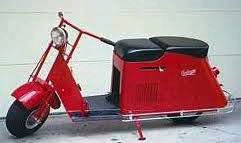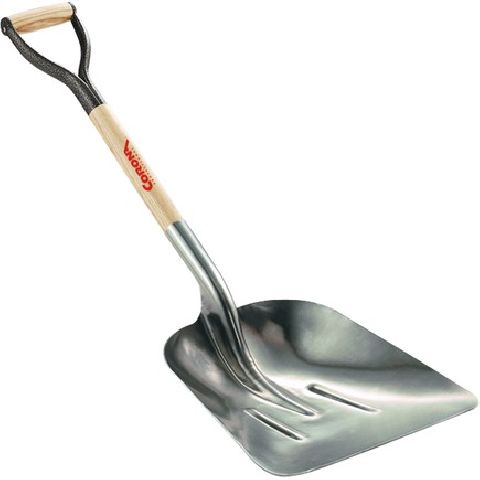In the first few years after “The War” every American wanted either something they had been denied during “The War” or something they’d never had. We teen agers were no exception. There were, of course, some fads that came and went, such as boys insisting on a pair of boots – either lace up “lumberjack” boots or stove pipe “engineer” boots. (And fads really do seem to have started at that time.) Cowboy boots remained the province of real cowboys in the southwestern states. To accompany our boots we had to buy “Levi’s.” They weren’t called “jeans” in those days and almost all denim pants were made in one style by one company, the “Levi Strauss Company.” The only time the word “Jean” or “Jeans” was used was as a name for a wimpy boy, or to denote something he owned.
The instantly recognized trademark (the word “logo” wasn’t yet used.) of the Levi Strauss Company was a picture to two mules pulling in opposite directions trying to rip apart the pair of Levi’s to which they were harnessed. The thing is, we “teeny-boppers” had to buy our Levi’s about 2 inches too long and then roll the cuffs up so that the top of our boots showed. Another fad that came and passed, no doubt to the delight of our Mothers, was coveralls. Not bib “overalls,” but a one-piece, long-sleeved garment. HOWEVER . . . they had to be WHITE. Unlike most of our “school clothes” they, being white, could be worn for only one day. Undoubtedly because of “Mothers” resistance to having to keep those things spotless, that fad didn’t last long. Girls had their own fads, saddle shoes, bulky sweaters, and bobby sox and the like. Girls NEVER wore Levi’s or any kind of “pants” to school. We had no “dress codes,” we just “knew.”
A more expensive fad was Cushman motor scooters and “Harley” or other kinds of motorcycles. For a few years in the late `40’s, there was a veritable fleet of motor scooters and motorcycles cruising the streets of Caney or parked in front of our high school during school days. This fad was my first step in the direction of making a decision that had a profound effect on my life. One of my friends, who, like me was an apathetic “student” also named Don; (Whittington) sat next to me in our Biology Class. This class was taught by a hapless teacher, I have identified in a previous story only as “Mr. X.” He tried to teach, but his utter lack of classroom control meant that very little learning took place in his classes.

A 1948 Cushman Motor Scooter
Lever below seat was a gear shift ( 2 speeds)
We two “Don’s” had absolutely no interest in stamen’s, phylum’s, pollinations or any other arcane bits of knowledge about living things so we occupied ourselves in whispered conversation and note-passing. We concocted a fantasy that soon enveloped us. At the time we didn’t think of it as a fantasy, it was a goal with a plan for attainment. We were going to spend the next summer (1948) working in the wheat harvest “industry.” There were “custom combine crews” that started the wheat harvest season in late May in OK or TX and ended it in MT or WY in the early fall. The first step in our fantasy was that immediately after school ended that year we would get a job on a combine crew. This was only a means to an end, though. The heart and soul of our fantasy was that we would save our wages and use them to go to the Harley-Davidson factory and take delivery of two brand new “Harleys.” Mine would be fire engine red. I don’t remember what color “Don” preferred. This fantasy sustained us during many class sessions during which we might’ve studied biology.
Don, a little older than I, apparently knew in his heart that it was more fantasy than plan. I, ever the romanticist, clung to it, stroked it, and fed it. A few weeks after school ended I persuaded my parents to let me ride my small English motorcycle to Western Kansas (Englewood) where I would hook-up with a little-known uncle who would help me get a job with a combine crew. I didn’t tell them of my “traveling with the crew” notion. The phrase wasn’t yet used, but I was familiar with the principle that it would be easier to get forgiveness than prior approval of my “plan.” On the way out I stopped overnight in Coldwater KS. The following morning I thought I’d might as well give the “wheat harvest plan” a trial run. Wheat harvest workers were hired the same way as the workers in Christ’s parable of the workers in the vineyard. The farmer came to town and offered a job to anyone who looked idle. One hired me.
One day is all it took to convince me that I must revise that part of my plan. Try shoveling wheat with a “Number 10” scoop shovel in a shed enclosed on three sides all day long in a Western Kansas summer day and you will understand my decision to look for something else. A No.10 scoop shovel is 14.5” wide at the mouth and 17.5 long from mouth to handle. One shovel full of wheat equals 100 lbs. The farmer and I agreed to part company at the end of the day.

The day following my entry into the world of agriculture I mounted my motorcycle and headed farther west. I went by my Uncle’s house in Englewood and found, “hallelujah,” that no one was home for I had no intention of asking him to help me find a job in the wheat harvest. Having fulfilled that promise to my parents I implemented a revision of my “plan.” I rode to a tiny hamlet southwest of Dodge City with the auspicious name of “Montezuma.” My brother was a “gang foreman” for a pipeline construction company that was, for the time being, headquartered there. I intended to persuade him to hire me as a common laborer on the pipeline. After much wheedling he gave in and hired me. And THAT . . . was where my fantasy of making enough money to buy a “Harley” ultimately led me. I became a “pipeliner.” That decision was to have a profound effect on my life.
I get hold of a little pup tent somehow and set it up in a pasture near the town. Because Montezuma had no living quarters for rent “tent living” was a necessity for the drifter class of pipeliner. There were a hundred or more “pipeliners” living in tents in the same field. All this would’ve been a grand adventure if it were not for the fact that common labor pipeliners at that time were the bottom feeders of society. I was thrown into the company of Ex-convicts, Wanted Criminals, Criminals by Preference who hadn’t yet been caught, and Ne’er do Wells of all stripes. A lot of them wanted as much anonymity as possible so they were known by nicknames only. I finished the summer working as a pipeliner, saved almost no money and didn’t buy a Harley that fall or ever. What I did was spend the next four summers working as a pipeliner in West Virginia, Virginia and Oklahoma. I learned to swear competently, drink beer from a quart bottle, shoot craps, and engage or attempt to engage in other sordid things that a teen ager should not even be exposed to, let alone do. I literally developed two personalities that competed inside me. One was that of an idealistic, educated and somewhat sophisticated person, the other that of an uncouth scoundrel. As I told a counselor years later, I couldn’t decide if I wanted to drink champagne in an upscale restaurant or beer in a seedy bar. And the truth was: I could function effectively in either situation. I became a chameleon. It was a troubling way to live and to be lived with. For the most part, since I was in public life as an Educator, the “nice guy” was visible most of the time; yet I continually feared that someone would be insightful enough to see “who” I was hiding. It took years of effort on my part and on others who cared enough to help me, combined with an incredible outpouring of the grace of God to assimilate my personality into an integral whole and it is still a work in progress.
If there is a sage lesson in all these experiences, it is that just as “the devil is in the details,” he also can be in "trivial" decisions. And parents must be smart enough to recognize that a teen ager is not an adult and cannot reason as an adult. Then they must be strong enough and willing enough to intervene when they know their child is making a choice that is not in her or his best interests.